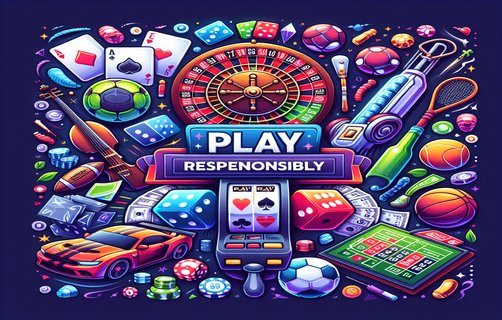The Evolution of Online Poker: Strategies, Systems, and Social Elements Transforming the Game
The world of online poker is undergoing a profound transformation, incorporating various systems and features that enhance player engagement and optimize financial outcomes. Central to this evolution are strategies such as the **Paroli system** and the **Under-over system**, alongside the influence of established gaming operators like **Yggdrasil**, which provide innovative gaming experiences. This report delves into these intricacies, analyzing how they intersect with modern economic theories of risk management, incentive structures, and social psychology.
The **Paroli system** is a betting strategy that focuses on maximizing profits during winning streaks. Players double their bets following a win, capitalizing on momentum while minimizing losses during downturns. From an economic perspective, the Paroli system embodies the concept of **loss aversion**, a principle posited by Kahneman and Tversky, which suggests that people tend to prefer avoiding losses to acquiring equivalent gains. This system aligns with the idea of maintaining a favorable risk-to-reward ratio, allowing players to hedge their positions effectively while adopting a positive outlook on their poker sessions.
On the opposite end of the spectrum lies the **Under-over system**, where players analyze the likelihood of certain outcomes, betting lower amounts on safer low-odds options as a conservative strategy. This approach resonates with the economic theory of **utility maximization**, where players seek to derive the greatest satisfaction or utility from their poker experience, balanced against potential financial risks. Betting small on low odds not only minimizes exposure but allows players to engage consistently without significant capital erosion; a wise maneuver that maintains participation over the long term.

Another critical aspect in the online poker realm is the **24-hour withdrawal** feature offered by many platforms, including leading operators like **Yggdrasil**. This functionality caters to players' demand for immediacy in accessing their winnings, aligning with the modern consumer's expectation for instant gratification. From an economic theory standpoint, this mirrors the notion of **liquidity preference**, where players prefer assets that can be quickly converted to cash. By providing seamless withdrawal processes, casinos enhance customer satisfaction, cultivate loyalty, and drive repeated engagement—essential elements for sustainability in the competitive online gaming landscape.

Moreover, casino welcome bonuses have emerged as essential tools for attracting new players into the ecosystem. These bonuses, typically in the form of matched deposits or free play, represent a **sunk cost** in economic terms where casinos invest in player acquisition. While this may seem a one-sided gambit, the long-term profitability emerges from retained players who, after initially benefiting from bonuses, continue to engage with the platform. This strategic layer creates a dual opportunity for both the casino and the player—the former secures a growing user base, while the latter enjoys a more enriched gaming experience.
Social gaming elements have also infiltrated online poker, reflecting the broader trend of integrating community and interaction in digital spaces. Features such as chat functions, player leaderboards, and interactive tournaments facilitate social dynamics that enhance player engagement. Analyzing this phenomenon through the lens of **social capital theory**, one can argue that these elements foster community ties, thus increasing the value of the gaming experience beyond mere financial transactions. Players are likely to remain loyal to platforms where they feel a sense of belonging, validating the interplay between personal connections and economic behavior.
In conclusion, the landscape of online poker is being reshaped by dynamic strategies and interactive features that cater to the evolving expectations of players. The **Paroli and Under-over systems** provide structured approaches to betting that reflect underlying economic principles, while features like **24-hour withdrawals** and **welcome bonuses** cultivate favorable player dynamics. By recognizing the importance of **social gaming elements** within this context, operators can enhance their offerings and reinforce long-term engagement, creating a sustainable ecosystem for all stakeholders involved. These developments not only signify the economic evolution of online poker but also highlight the necessity of innovative thinking in retaining competitive advantage in a rapidly changing industry.
